Publications
Articles, publications, books, tools and multimedia features from the U.S. Institute of Peace provide the latest news, analysis, research findings, practitioner guides and reports, all related to the conflict zones and issues that are at the center of the Institute’s work to prevent and reduce violent conflict.
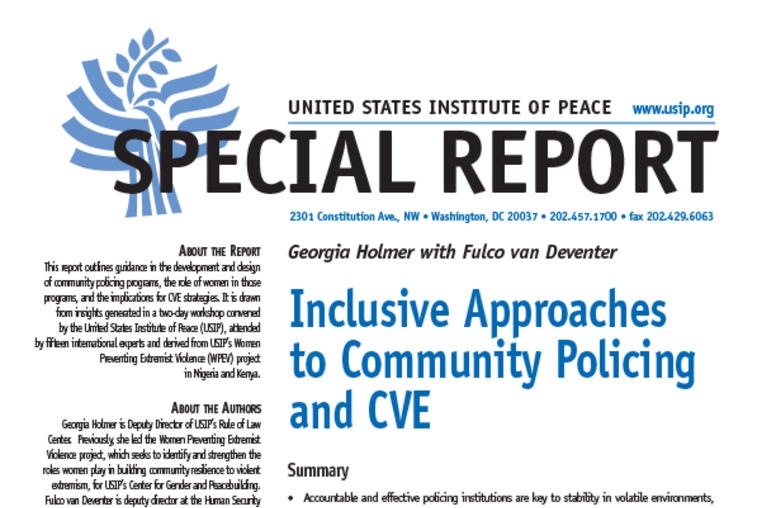
Inclusive Approaches to Community Policing and CVE
What happens when community policing—a strategy that promotes collaboration between the police and a community to ensure safety and security—is implemented in transitional societies, in marginalized communities, or to prevent violent extremism or to engage women in providing community-level security? To ensure that they are not doing more harm than good, security, gender, and peacebuilding practitioners must both expand their understanding of policing methodologies and related assumptions and...
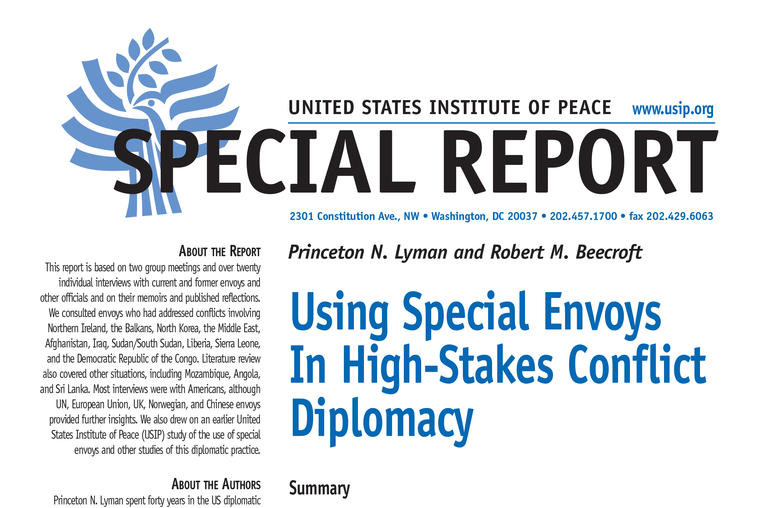
Using Special Envoys In High-Stakes Conflict Diplomacy
Special envoys or representatives have been used by nearly every administration to address high-stakes conflicts and to address situations with a degree of attention outside the capacity of the State Department and other regular bureaucratic structures. This report focuses on the issues surrounding the use of special envoys or representatives and how they can be used most effectively.
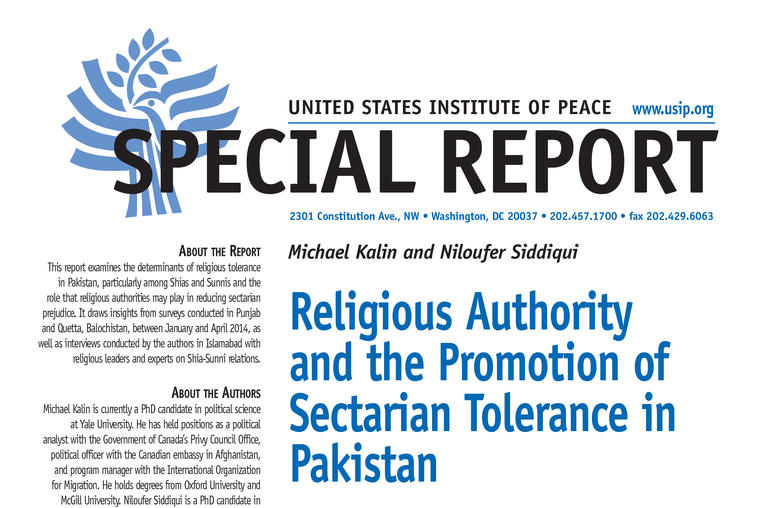
Religious Authority and the Promotion of Sectarian Tolerance in Pakistan
Sunni-Shia tensions have been a recurrent problem in Pakistan for more than three decades, as domestic and international factors have polarized sectarian identities. Recently, the Shia minority has suffered the brunt of the violence. This report examines what has fostered intolerance and tolerance between Sunnis and Shias in Pakistan and the role that religious authorities may play in reducing sectarian prejudice.
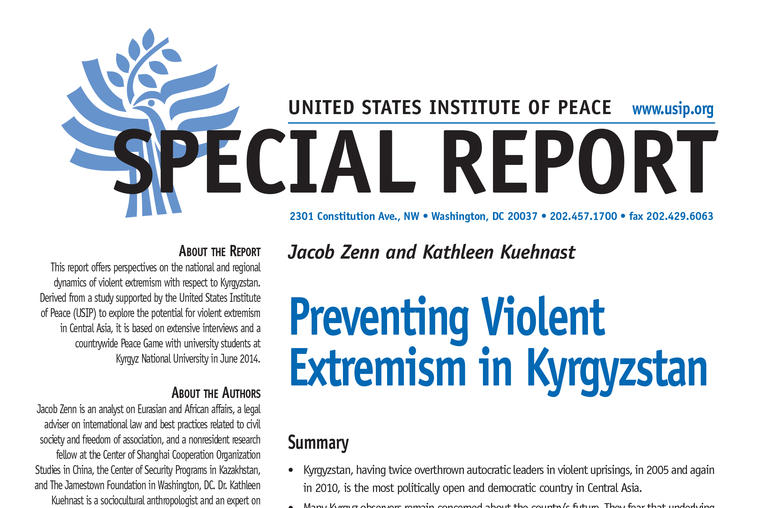
Preventing Violent Extremism in Kyrgyzstan
Kyrgyzstan is the only country in Central Asia that has seen significant political transition since the breakup of the Soviet Union in 1991, having twice—in 2005 and 2010—overthrown autocrats in violent uprisings. At the same time, its new democratic institutions, elected leaders, and multiparty parliament make it a test case for political liberalization. If its political system fails or the country falls apart, so will the first democratic experiment in Central Asia. Concerns within Kyrgyzst...
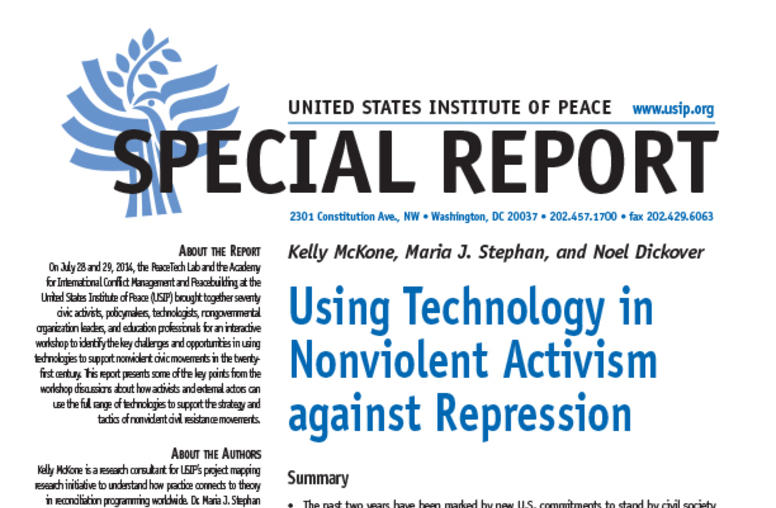
Using Technology in Nonviolent Activism against Repression
In an era of crackdowns on freedoms of peaceful assembly and association, what role can technology play in strengthening nonviolent civic mobilization? How can activists strategically apply the full range of technologies to build and sustain movements where the options for nonviolently resolving conflicts are diminishing under increased repression? Informed by discussions from a USIP workshop, this report explores avenues for engagement between activists and external actors to use technology ...
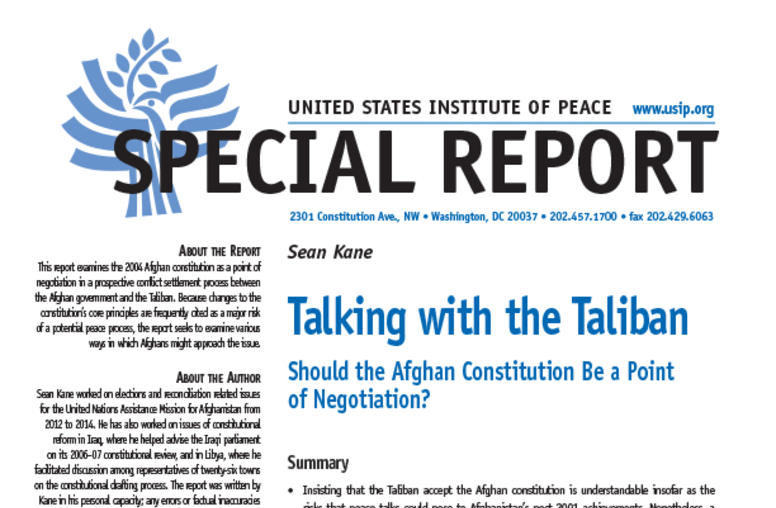
Talking with the Taliban
Drawing on the comparative experiences of governments negotiating with insurgencies in the Philippines, Myanmar, and Colombia, as well as a detailed examination of the Taliban’s possible constitutional demands, this report examines the 2004 Afghan constitution with respect to its potential inclusion in peace talks between government and Taliban leaders. It argues that, if the issue is handled carefully and with strategic intent, the Afghan government may be able to seize the political high gr...
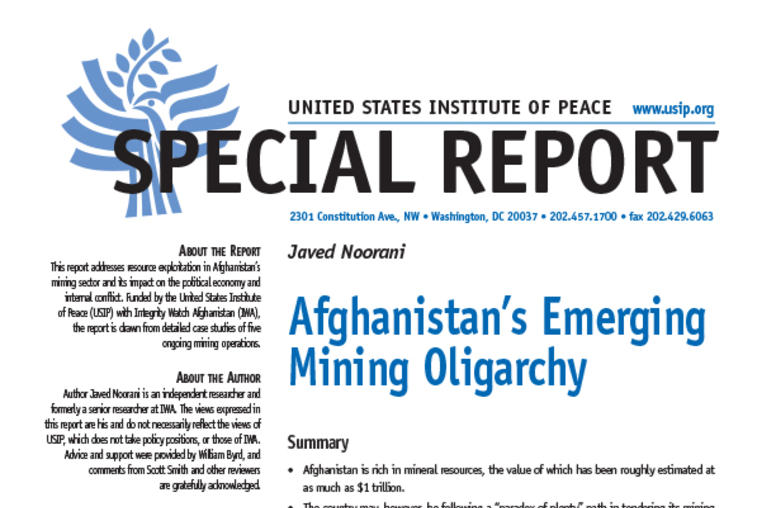
Afghanistan’s Emerging Mining Oligarchy
Rich in natural resources—ferrous and nonferrous metals and strategic minerals in particular—Afghanistan faces a dual threat as international troops withdraw and international aid declines. On the one hand are inadequate government revenues. On the other is the resource curse that affects so many low-income countries. This report, drawn from case studies of five ongoing Afghan mining operations, addresses resource exploitation, its impact on the political economy and internal conflict, and po...
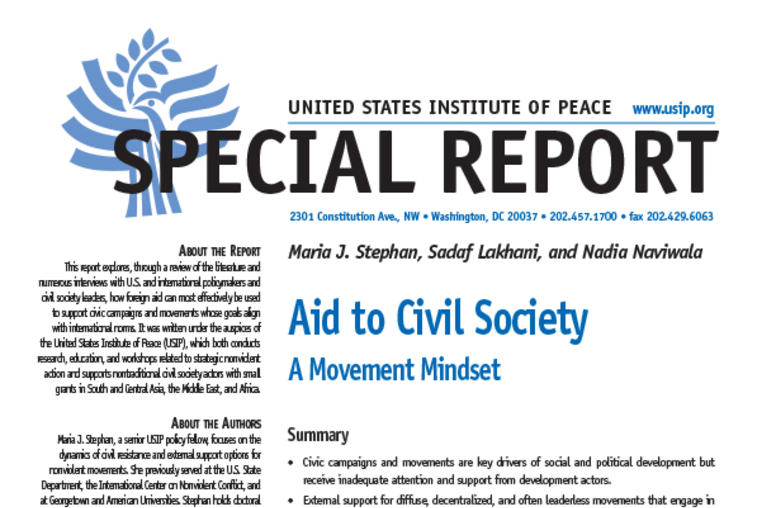
Aid to Civil Society: A Movement Mindset
Supporting local agents of nonviolent change is critical to preventing violent conflict and advancing democratic development. Civic campaigns are key drivers of social and political development, as is clear from issues-focused movements in Central and Eastern Europe, Latin America, and most recently the Middle East and North Africa. Effectively aiding civic movements that are fluid, diverse, decentralized, and often loosely organized is tricky. Drawn from a review of the literature and numero...
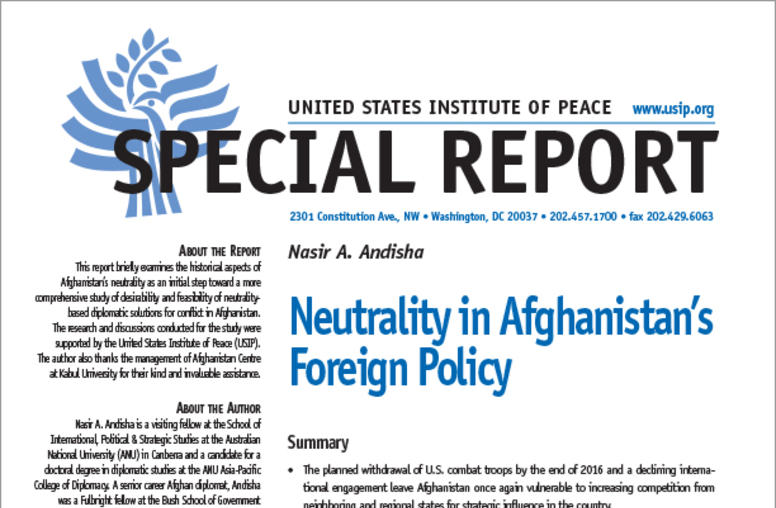
Neutrality in Afghanistan’s Foreign Policy
President Obama’s decision to withdraw all U.S. combat troops from Afghanistan by the end of 2016 leaves that country once again wide open for an intensified regional race for strategic influence in the country. The majority of experts—both Afghan and international—agree that lasting peace and stability in Afghanistan require internationally backed regional arrangements. A recent forum involving high-profile Afghan politicians, former diplomats, and civil society leaders underscores this cons...

Islamic Law, Customary Law and Afghan Informal Justice
As Afghanistan's nascent democracy works to establish the rule of law across the country, it finds itself contending with the ways that Islamic law converges and diverges from the tribal norms that shape the settling of disputes outside Kabul. Based on surveys conducted in Afghanistan, this report examines the points of tension and agreement between Islamic and customary laws, looking into both of their pasts to suggest a way forward for the Afghan state, particularly in granting greater righ...